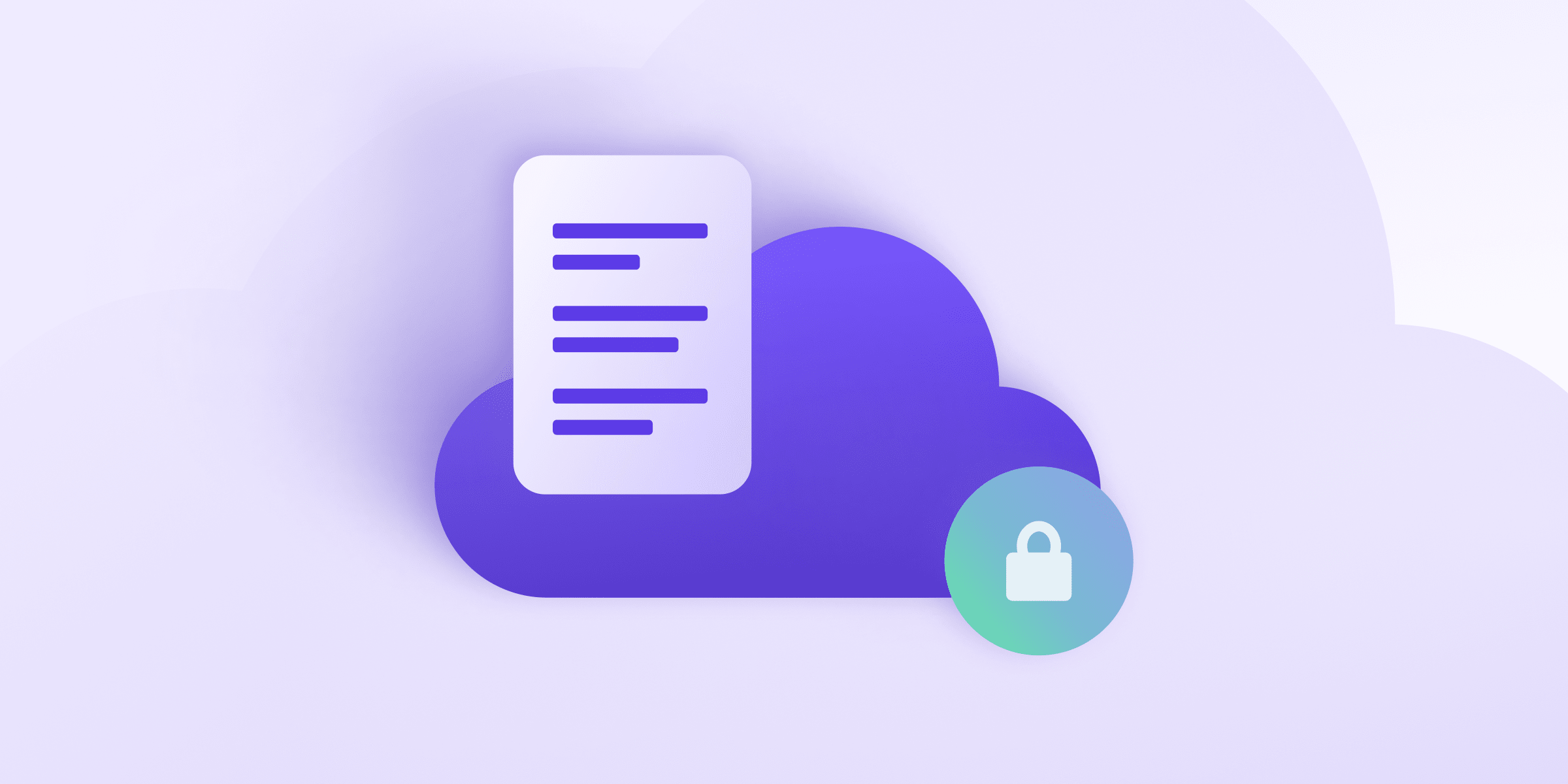We all have sensitive personal information we’d all rather not share, whether it’s documents, photographs, or even private video. This article covers how to handle sensitive information or records, and what you can do to keep private information private.
- What is sensitive information?
- How to handle sensitive information
- How Proton keeps your sensitive personal information safe
What is sensitive information?
Let’s first define what sensitive information is, as it can mean different things to different people. For our purposes, sensitive information is any data you don’t want other people to know without your express permission. This could be anything, too, ranging from your Social Security number (or your country’s equivalent) to tax declarations, bank statements, or family photographs.
There’s also business-related information you may consider sensitive, like financial information, but also market research, client directories, and work product — anything you’ve worked hard to build and want to make sure competitors don’t get their hands on.
Sensitive information isn’t only found in documents, photographs, or videos, either. It could also be something like your bank PIN, a note with some important information, or a file’s metadata.
Luckily, thanks to modern technology it has become very easy to take any information and store it securely, away from prying eyes.
How to handle sensitive information
The best way to handle digital information is to restrict access. For physical documents this means using a safe or a locked drawer. For anything digital, you need an electronic equivalent. The simplest thing you can do is take all your sensitive files, put them into a folder on your hard drive, and then password-protect that folder.
However, this is just the first layer of security. As we explain in our article on the principle of “3-2-1 backup”, you need to build some redundancy. If you keep everything on your computer and nowhere else, and something happens to that computer, the information will be gone forever.
This is where cloud storage comes in. As the name suggests, it’s a service that allows you to store files in the cloud. It’s great for sensitive information as it’s both always accessible as long as you have internet access, as well as kept safe in a secure, remote location. If you back up all your sensitive files on the cloud and on your computer, you have the convenience of having them at hand, and the peace of mind that comes with having a backup.
How Proton keeps your sensitive personal information safe
Some cloud storage services are more secure than others. You only have to look at the long list of Dropbox security incidents to see that even mainstream providers can encounter security issues. We created Proton Drive to store and share sensitive files using more advanced security than many other services offer.
Unlike many of our competitors, we use end-to-end encryption to safeguard all the files you upload to our cloud. This means that nobody, not even Proton, knows what’s in your account, and even if we were breached somehow — something that has yet to happen — the hackers would only see unreadable encrypted files. Your sensitive information would still be totally safe.
We also offer unprecedented hardware security: All our servers are encrypted, too, and backed up so that should something happen at our datacenters, your files are safe.
Sharing sensitive files
On top of that, Proton Drive also makes it easy to share files securely. When you decide to share sensitive information with somebody, you get to decide exactly who gets to see what you’re sharing. You can even password protect a folder to further increase security. Naturally, you can also stop sharing at any time, or even make links expire after a certain time.
Proton Drive also has the ability to sync certain folders, thus ensuring they’re always up to date in the cloud. This means it works as an automatic backup for all your sensitive files, so you’ll never have to worry about having the latest versions backed up.
Finally, Proton Drive offers one truly unique selling point, namely Proton itself. In the decade we’ve been in business we’ve become a byword for privacy. We’re entirely funded by you, our users, and thus have no shareholders to please or special interests we need to watch out for. Our community is our only priority.
If this sounds like something you’d like to be a part of, create a Proton Drive account today. The first 5 GB is free and will remain that way. The free plan also includes access to Proton Pass, which allows you to store any short notes securely without needing to create an entire new document.














